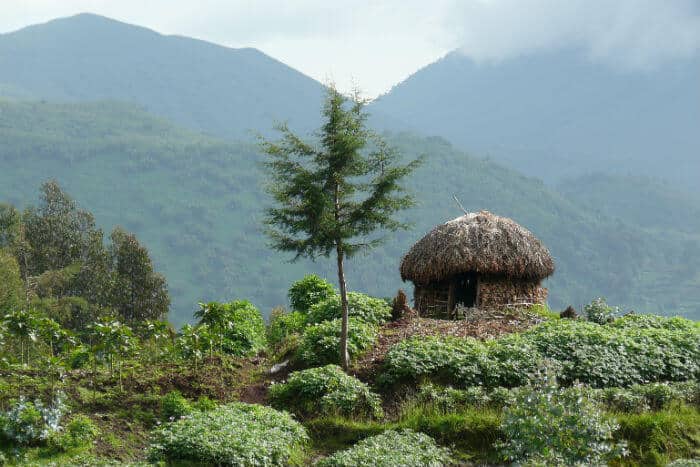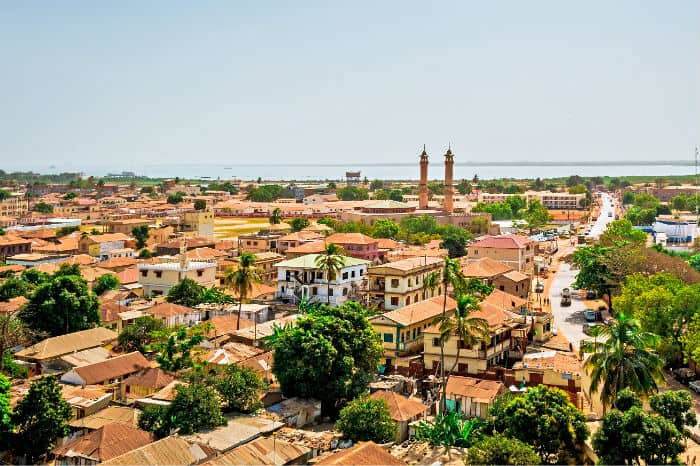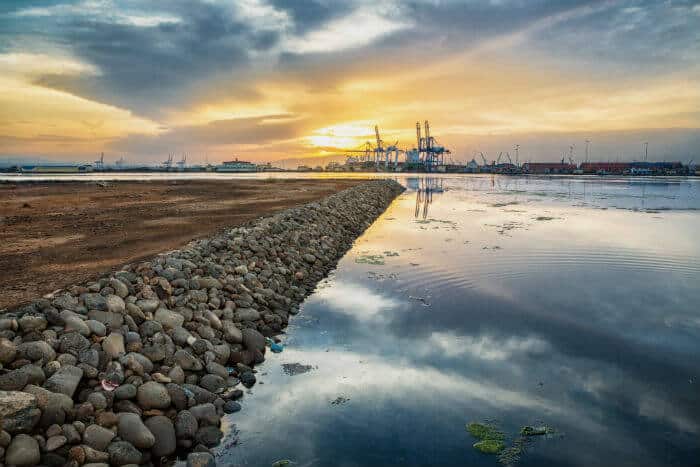The Best Emerging Markets for Investing in Africa
October 23, 2023
For years, we’ve been both fascinated and mystified by the opportunities and the idea of investing in Africa.
As small entrepreneurs, you may not be interested in extracting diamonds from the earth, running a farm the size of a small city, or shipping cargo loads of goods. But it is still fascinating to be a part of an entire continent ready to develop.
Frontier marketing investing is a big part of the Nomad Capitalist investment strategy. When done correctly and with proper knowledge, returns can be huge.
As the Chinese invade all parts of Asia that are open for business, Africa is increasingly the final frontier. While many of its nation-states are incredibly poor, corrupt, and undeveloped, a population of one billion people averaging barely 20 years old is hard to ignore.
Would you like more insights into global investments and offshore strategies? Sign up for our Weekly Rundown, where we share our exclusive hand-picked insights on international investments, citizenship and residency, real estate, tax strategies, and diversified living.
Why Invest in Africa?
Investing in Africa is different than investing anywhere else in the world, including other frontier markets. In this article, we’ll focus on frontier markets to invest in. And when we say frontier markets, we really mean it; only the most adventurous brave these countries.
If you’re looking for tropical paradises or places that have already proven themselves, this is not your list. However, with risk (sometimes) comes reward, and we like the recent trends in these countries.
Challenges to Investing in Africa
The biggest challenge to finding the best places to invest in Africa is reliable information. While indices tracking economic freedom are helpful, they don’t always tell the whole story. A young entrepreneur starting a business on the ground may not deal with the same corruption issues a multinational corporation will deal with. If you focus only on data at the expense of real-world experience, you won’t get very far.
While a European market like Ireland may offer a certain type of freedom, your savings account will yield 0%, the costs of living and doing business are high, and success is far from guaranteed in a competitive marketplace. Meanwhile, many African markets are wide open to innovators.
There are several types of people who might consider investing in Africa’s frontier markets. Among them are young investors with less cash and a higher tolerance for risk. If you’re willing to put the time in on the ground in search of high-risk and high-return, there are few places left with the growth potential of some African markets.
Those of us who are more established might also consider diversifying a small part of our assets into frontier markets. There are African ETFs, but these rarely track the ultra-high growth opportunities we talk about here, meaning you’re likely better off staking someone actually on the ground.
The Best Countries for Investment in Africa
While investing in Africa’s new frontiers is far from easy, I’ve created a list of our favorite African emerging markets based on years of in-person research, local connections, and analytics.

Rwanda
If you are an entrepreneur focusing on business friendliness as a key metric, you may look to small and nimble markets that must compete for business. In that aspect, Rwanda may take the top spot.
It’s been called the “Singapore of Africa” for a number of reasons, and as we are constantly searching for “the next Singapore,” this excites us. Kigali, the capital city, is incredibly clean and safe, and the government is efficient and responsive.
Business registration in Rwanda isn’t just fast by African standards; it’s possible to register a company within just hours. Like Georgia, Rwanda keeps bureaucracy moving quickly with a highly organized government that minimizes risk. Similar to Georgia but better, anyone can get a visa on arrival at Kigali Airport.
Another thing Rwanda has that is rare among African nations is a strong vision. The country’s “Vision 2020” program was relatively well-crafted, aiming to double urbanization to 35% by 2020.
Free trade zones are one way they have increased foreign investment, and the focus on growth has led to an average of 7.21% GDP growth since the early 2000s.
Following Vision 2020, Rwanda’s current development strategy is Vision 2050, which aims to transform the once war-torn nation into an upper-middle income country by 2035 and a high-income country by 2050.
Internet connectivity is among the best in Africa. With Rwanda playing an increasing role as a regional hub, we expect this can continue if the government continues its free-market path.
Despite limited natural resources, Rwanda was one of China’s most significant investment plays. But there may be opportunities for other investors, too. Housing shortages are a real thing in Kigali. There are tax breaks, too; invest $10 million and pay zero, or produce goods for export and pay a flat 15%.
Rwanda certainly has had a sad history, suffering from civil war in the 1990s. The country seems legitimately ready to leave the past behind and move into a new capitalist future. While such events are never pleasant, a country that learns from its recent past is often the best place to invest in the knowledge that they don’t want to go backward.
Zambia
Zambia is a southern African nation that has long been a beacon of stability on the continent since becoming independent from the United Kingdom in the 1960s.
The country had one of Africa’s fastest-growing economies, which has since slowed down. The government has opened incentive programs to ensure the economy is diversified, and although the system seems clunky, it’s starting to work in numerous sectors.
Zambia’s economy benefits from years of development, which means a more advanced banking system with players such as Barclays, Citi, and Bank of China. New businesses can avail themselves of a 0% corporate tax rate for their first five profitable years and partial reductions afterward. GDP growth has been predominantly positive for a decade. In 2021, the African nation had a real GDP growth of 4.6%, supported by copper prices and external demand.
Just as importantly, Zambia sits in potentially the best neighborhood in Africa. While the country is landlocked, trade opportunities are interesting even (or perhaps especially) as South Africa continues to struggle. While Zambia is not a “sure thing,” the region’s political stability and the country’s above-average push to attract and reward foreign investment are intriguing.

Gambia
For decades, Gambia was run by President Yahya Jammeh. Jammeh’s dictatorship oversaw the oppression of journalists, the exile of gays, and even a first-ever withdrawal from the Commonwealth. Corruption was persistent in this tiny West African nation.
Jammeh was voted out of office in 2016, thanks to a surprise election that has paved the way for Gambia to reduce corruption and attract business. There is no doubt that The Gambia’s economic situation is dire, but the new government has taken a business-friendly approach thanks to actual businesspeople who are part of the new administration.
Gambia is offering tax breaks and incentives in a number of economic sectors and is rolling out new plans to rebuild confidence in the new government’s ideas. Some industries are being privatized, government debt is slowly being reduced, foreign exchange reserves are being built up, and locals say a sense of freedom has returned. There is also growth in the financial sector as the government rolls back regulations and allows even more foreign investment in Gambian banks that provide credit to locals.
Undoubtedly, Gambia has a small, perhaps even fragile, domestic economy, but it is slowly heading in the right direction. We are optimistic that a pro-business government can make Africa’s smallest nation a highly nimble and adaptive place frontier market for investment.

Djibouti
Conservative think tank the Heritage Foundation says, “Entrepreneurial decision-making requires a high tolerance for uncertainty and risk.”
While we are observing developments in Djibouti carefully, there is no denying the country’s excellent position on the map. This tiny nation of just over one million people is smack dab in the middle of the world’s second-largest shipping route on the Red Sea. Unlike much of Africa, agriculture plays little role here; the port, with its shipping and logistics, is what matters.
Djibouti also enjoys friendly relations with neighbors like far larger and landlocked Ethiopia.
China has heavily invested in Djibouti’s port and has opened its first overseas military base there, and in 2023, signed a deal with Hong Kong Aerospace Technology Group to build the first African spaceport, which is expected to be completed in 2028.
The presence of the Chinese and other expats who see Djibouti as a goldmine may be the reason the country “feels safer” than many other African countries.
Its GDP is projected to grow by 5.4% in 2023 and 6.5% in 2024, but it continues to struggle with external debt repayments.
While we would be somewhat cautious of Djibouti, there are a lot of good fundamentals between good company, good geopolitics, and good geography that intrigue us. Djibouti City was quite the hot spot for foreigners seeking investments not so long ago and may still be worthy of consideration.
Other friendly countries to invest in Africa include Egypt, Morocco, Kenya, Botswana, Ghana, Côte d’Ivoire etc. Africa still has some challenges, of course. However, some niche funds on the ground may offer some potential.
Emerging and frontier investment opportunities are not for everyone. This is not investment advice, and we highly recommend consulting with experts on the ground who are dealing with high-risk investments.
At Nomad Capitalist, we help seven and eight-figure entrepreneurs legally increase their freedoms and options overseas. Whether that be in an emerging market or somewhere more established, apply to become a client, and our global team of experts with years of experience dealing with high-net-worth and ultra-high-net-worth entrepreneurs will help you create a bespoke strategy.


Is Land Investment Safer?
When American humorist and writer Mark Twain said, ’Buy land, they’re not making it anymore,’ he was definitely on to something. Land is finite, and that scarcity gives it lasting appeal. Yet, despite its obvious logic, land remains one of the most misunderstood investments. Many people are put off by its perceived complexity, potential legal […]
Read more

Top Emerging Market Economies for US Investors in 2025
If you’re still parking all your capital in overvalued US real estate or clinging to tech stocks in the S&P 500, you’re playing an old game while rivals are redesigning the board. The world has move on. Smart investors know that the biggest returns aren’t coming from Wall Street anymore – they’re coming from below-the-radar […]
Read more

Monaco Real Estate Guide: Market Trends and Opportunities
When it comes to luxury real estate, nowhere does things quite like Monaco. This tiny but ultra-exclusive principality isn’t just a place to live – it’s a global symbol of wealth, prestige and financial freedom. In 2025, Monaco remains the world’s most expensive real estate market, with average property prices soaring beyond €51,000 per square metre […]
Read more





